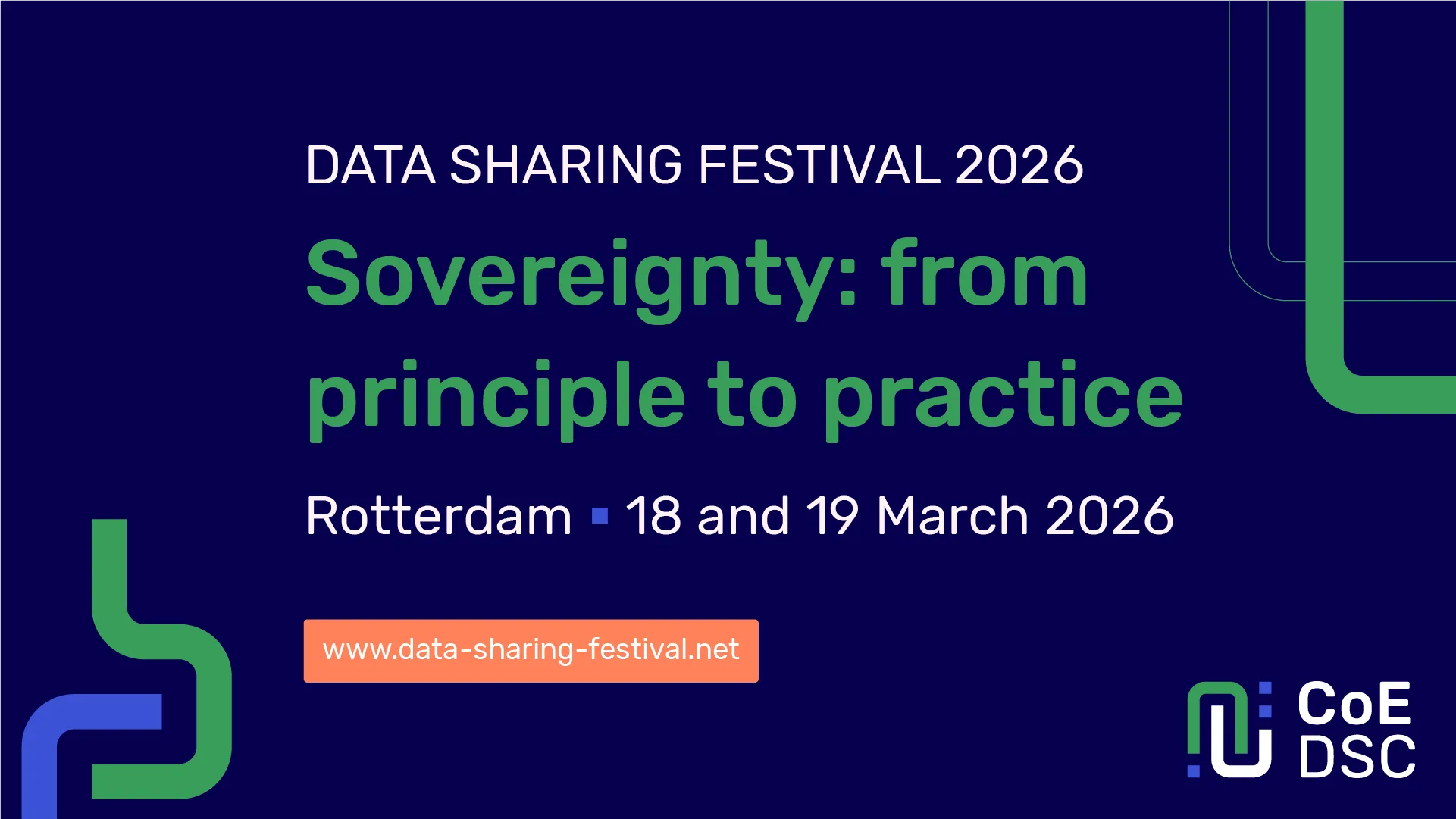
- This event has passed.
September 12, 2024 @ 09:00 - 18:00 CEST

Conference co-organised with Gaia-X Institute
The enactment of the Digital Act and the Digital Governance Acts were major achievements of the outcoming European Commission and Parliament. The new Commission, the regulatory authorities and industry now face the challenge of the development of data ecosystems. A wide range of initiatives have been launched over the past years, service providers have been developing solutions, users have been involved in experimentations and standardization efforts, developers in industry and academia have been working on the technology, public authorities have been facilitating cooperation among stakeholders, etc. It is now time to take stock of these efforts and to start drawing the lessons to be learnt from these efforts carried out in different contexts.
The conference will gather experts from industry, from national regulatory authorities, from the Commission and from academia with the aim of proposing analyses that should inform public policies and business strategies.
While the notion of “market for data” is often put forward, we are rather witnessing the development of “data-sharing ecosystems” supporting coordination processes among the stakeholders involved in a given value chain or industry. Data-sharing is thus primarily about benefiting from less costly-more rapid coordination processes. Data-sharing can also allow to enhance coordination thanks to new coordination features. In some cases, data-sharing triggers the provision of new services thanks to innovations in coordination.
The economics and technology of data-sharing starts to be documented. Three set of issues are informed by the current development. First, the benefits and costs for stakeholders sharing data allow to analyze the dynamic of emergence and the relevant scope of dataspaces, and of course to identify the key use cases to be developed. Second, the role played by data-intermediaries allows to understand their added-value in the emergence and development of dataspaces. Third developments in the technologies of compliance inform on how the governance of dataspaces can be established.
The conference will therefore be organized along four panels. First, the economics of data-sharing will be explored with a specific focus on use cases, including analysis of the dynamic of emergence and performance. Second, the key role of data-sharing orchestrators will be highlighted, and their business models will be analyzed. Third the stakes of automated compliance and underlying governance arrangements will be discussed. Lastly, policy lessons will be drawn from what has been already achieved, and emerging policy challenges will be highlighted.
1- The economics of sharing data
The overall objective of a data ecosystem is to generate use cases. These use cases range from solutions aimed at economizing on costs in managing current flows of information among business partners, to the provision of new services allowed by new way of exploiting the information synergia and complementary capabilities of a set of players, and cover the development of data set aimed at training AIs.
What are the incentives of the various stakeholders in initiating or joining a data space? What are the factors hindering cooperation around information flows ? What are the dynamics allowing to reach a critical mass of “adopters”? How the challenges of cooperating in a context of competitive rivalry are dealt with? And of course, how costs and benefits should be distributed, both in static and in dynamic, since part of the returns are to be expected in the long run.
2- The business models of orchestrators
One of the lessons learnt from the existing initiatives is the key role of data intermediaries. They act as orchestrators of ecosystems, not only because they provide technical support, but also because they are key in guaranteeing trust among stakeholders. Moreover, in industries characterized by many players or a high heterogeneity among them, they act as facilitators in aligning interests and allowing convergence on shared norms and practices. Yet the underlying economics of their role is to be uncovered as well as their business models. In practice, significant contrasts can be observed among them. These contrasts certainly echo the diversity of the dataspaces, but it is certainly needed to go beyond this observation to understand whether the business model developed in a specific value chain is “scalable” to others. Also, it is essential to document the delays of return on investments, and to what extent data-intermediaries can manage cross-subsidization among stakeholders to maximize collective benefits.
3- The Challenge of Compliance / Compliance by design
A key dimension to trigger the development of data-sharing is the development of a wide set of technologies and services supporting compliance, both with the legal framework and with the specific organizational and contractual arrangements characterizing each ecosystem and use case. Compliance itself is both a question of technology and of governance arrangement. One of the most demanded features is cloud sovereignty for European users using American cloud service providers subject to the Cloud Act. SecNumCloud 3.2 in France is offering Cloud Sovereignty, but ENISA has postponed the equivalent level in EU CS, while Gaia-X is offering this level of protection with its Label level 3. The technical check of cloud sovereignty will be a first illustration of automated compliance by design using detailed specifications associated to label 3 and implemented by clearing houses.
4- Public Policies: Beyond regulation and subsidies? / Regulation and Policy
The Union and the Member States have already significantly supported data sharing initiatives, both by establishing the legal framework enabling its development and the governance of dataspaces, and by subsidizing industrial initiatives and R&D efforts. Now that foundations and experimentations are in place, what remains to be done? The question is largely in the hands of the regulatory authorities who will have to implement the regulatory framework, and probably contribute to adapt it to the emerging issues raised by actual practices and potential innovations. The revival of industrial policies will also lead governments and industry associations to tackle new challenges, which will impact on the dynamic of data sharing development. More generally, data sharing has certainly a role to play in the management of European priorities as the environment, the digital transformation, or the cohesion. The panel will discuss how the EU and Member States data sharing policies should adapt to the renewed context.
Program:
9h – Introduction
Eric Brousseau, Professor of Economics and Management, Scientific Director of the Governance and Regulation Chair, Paris Dauphine-PSL University and Jakob Rehof, Professor of Computer Science TU Dortmund University and director of Research Strategy, Fraunhofer Institute for Software and Systems Engineering
9h15 – 9h30 – Keynote by Laure de la Raudière, President of ARCEP
9h30 – 11h – Round table 1: The economics of sharing data
Chair: Eric Brousseau
Speakers:
- Opening by Lucas Eustache, PhD student, Governance and Regulation Chair, Paris Dauphine-PSL University
- Oliver Ganser, CEO Catena-X Association and Industry Consortium
- Frederic Sutter, Head of Skywise, Airbus
- Thierry Desforges, VP R&D, Fédération Nationale des Syndicats d’Exploitants Agricoles (FNSEA)
- Pierrick Le Masne, SVP Strategy in charge of the group’s digital and technological issues, Groupe Accor
11h – 11h30 : Coffee break
11h30 – 13h – Round table 2: The business models of orchestrators
Chair: Joëlle Toledano, Professor Emeritus, associated with the Governance and Regulation Chair, member of the French National Digital Council (CNNUM)
Speakers:
- Opening by Lucas Eustache
- Laurent Lafaye, Co-Director, Dawex
- Sébastien Picardat, CEO, Agdatahub
- Thorsten Fuelling, Vice President Consulting & Business Development, Supply-on
13h – 14h15 : Lunch
14h15 – 15h45 – Round table 3: The Challenge of Compliance / Compliance by design
Chair: Jakob Rehof
Speakers:
- Opening by Jakob Rehof
- Pierre Gronlier, Chief Innovation Officer, Gaia-X
- Antoine Kubiak, Government Affairs Manager, Microsoft
- Sven Löffler, Head of Data Spaces and Data Products, T-Systems
- Catherine Simonnin, Tech lead Trust, Orange Business
15h45 – 16h : Coffee break
16h – 17h30 – Round table 4: Public Policies: Beyond regulation and subsidies? / Regulation and Policy
Chair: Hubert Tardieu, Independent Director, Gaia-X
Speakers:
- Opening by Yvo Volman, Director of the Data directorate in the Directorate General for Communication Networks, Content and Technology, European Commission
- Mario Campolargo, Former Portuguese Secretary of state for Digitalisation and Administrative Modernization
- Boris Otto, Professor for Industrial Information Management, TU Dortmund University and Executive Director, Fraunhofer ISST
- Laura Létourneau, expert advisor for ecological and digital transformations, French Government
- Anne Yvrande-Billon, Director for Economy, Markets and Digital, Arcep
17h30 – 18h – Conclusion
18h – 19h30 : Cocktail
Please fill the register form if you want to attend the conference.



